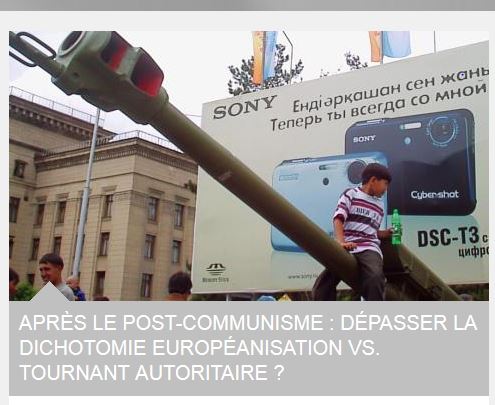edited by Karl Cordell & Konrad Jajecznik
The Transformation of Nationalism in Central and Eastern Europe
Ideas and Structures
Over a quarter of a century has passed since the initiation of political transition in Central and Eastern Europe. During the nineteenth and twentieth centuries the area was a veritable kaleidoscope of peoples, with the politics of nationalism being both virulent and dominant in this part of the continent. One of the most significant components of the contemporary transformation process is nationalist revitalisation throughout the continent, not least in the countries covered in this volume. The result of this experience and more importantly the memory of this experience, is that it has become commonplace to assert that in post-communist Europe, questions surrounding the idea of nation and state and minority protection are more germane to everyday discourse than are similar questions in Western Europe. The lessons drawn from the case studies presented in the volume are intended to provide valuable lessons for those engaged in the study of nationalism in the central and eastern part of the continent.
Table of contents
Acknowledgments
Introduction
Karl Cordell, Germany and Poland: Strangers on a Train or Participants of a Common Destiny?
Konrad Jajecznik, The Nationalist Movement in Poland: the Third Evolution Phase of Polish Nationalism after 1989?
Peter Smuk, Combating Nationalist Hate Speech by Legal Means – European Standards and Selected Case Studies from Hungary
Gergely Egedy, Nation-Building and Kin-Minorities: the Strategies of Hungarian Conservatism
Ágnes Vass, Whose Citizens? The Development of Hungarian National Policy Towards Kin-Minorities after 1989 – With a Special Focus on Ethnic Hungarians Living in Slovakia
Justyna Polanowska, The Swedish-Speaking Minority in Finland: Identity, Ethnolinguistic Vitality and Upcoming Challenges in the Preservation of Official Language Status
Jiří Čeněk & Josef Smolík, Nationalism and Its Manifestations in Sport: the Case of Football Hooliganism in the Czech Republic
Miroslav Mareš, The Radicalisation of Slovak Separatism after the Fall of Communism and its Impact on Czech – Slovak Relations
Andrzej Wierzbicki, The ‘New Russian Nationalism’ as a Challenge to Modernization in Russia
Katharina Buck, Limitations to the Nationalising State: the Case of Kazakhstan
Notes on contributors













